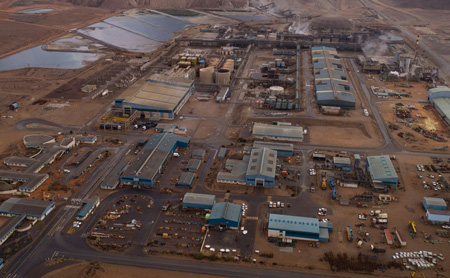
Skorpion Zinc faces N$314 million loss due to strike

The strike which put operations at the Skorpion Zinc 14 days behind its mining schedule, is anticipated to result in a N$314 million overall loss, General Manager, Skorpion Zinc, Irvinne Simmata said this week.
Skorpion Zinc on Sunday announced in a statement that its mining contractor, Basil Read, has reported the return to work by its employees who had been on strike.
Basil Read is a business partner that was contracted to execute the Pit 112 push back project as a life extension mining project for Skorpion Zinc, therefore without this life extension project, Skorpion Zinc would have ended its operations in 2017.
General Manager, Skorpion Zinc, Irvinne Simmata said with the impact on current ore stock levels and the lead time to restart mining operations, this has placed a huge risk on the viability of the business with the temporary closure of the refinery eminent due to the plant running out of material to treat.
“This in itself could result in the restructure and or premature closure of the operations.,” he added.
Simataa said that the miner has continued to raise its concerns that work stoppages such as these have an enormously negative impact on the business.
“This has been the third disruption in the past seven months. We implore all workers, be it Skorpion Zinc employees or our business partner to remain focused and committed to ensure an expedited resolution to all outstanding issues so that everyone work together to see the delivery of the Pit 112 project and avert the premature closure of the company,” he added.
“We reiterate the call on the leadership of the Miners workers Union of Namibia to engage with Basil Read and with us through existing channels to ensure that the situation is resolved as rapidly as possible and avoid future business disruptions or stoppages,” he concluded.
Comprising an open-pit mine and refinery, Skorpion is the largest integrated zinc operation in Africa and employs about 1,900 people, including those of its business partners.







































